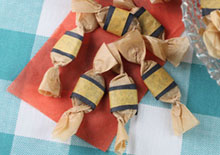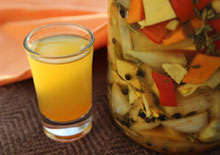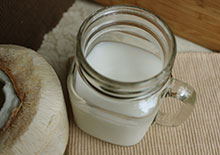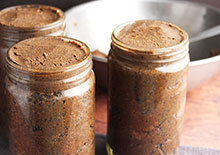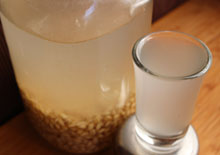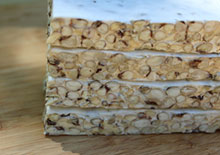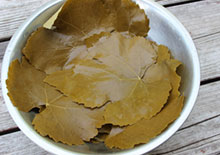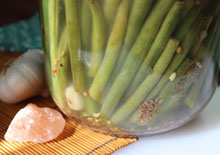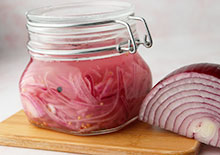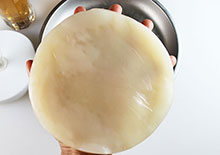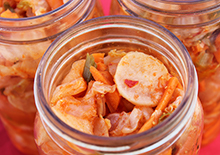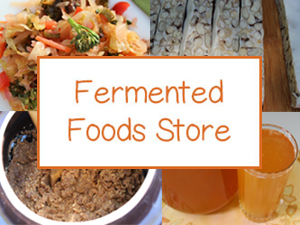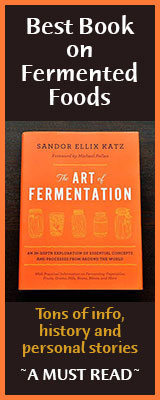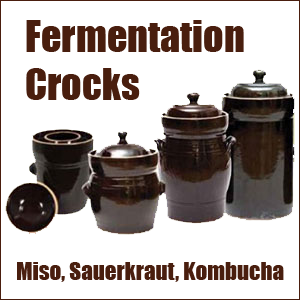- Home
- Fermented Food Recipes
- Vegan Parmesan Cheese
Vegan Parmesan Cheese, A Fermented Seed Cheese Recipe
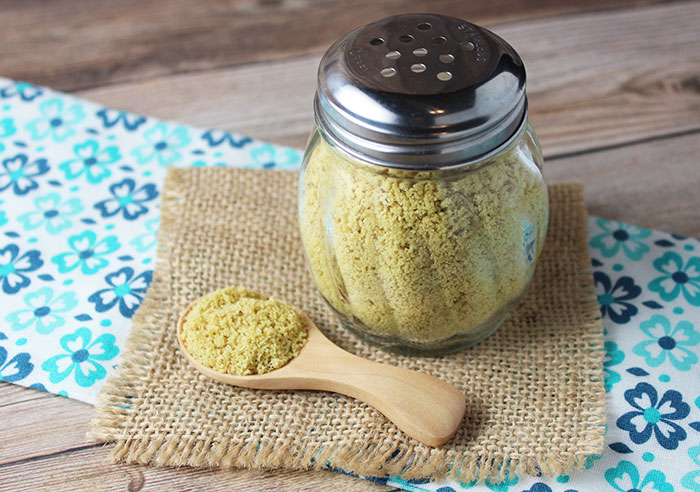
This vegan parmesan cheese is a little different than most recipes out there in the plant-based world. In this one, we take advantage of traditional cheese-making methods to give our dairy-free alternative the upper hand as far as flavor and nutritional quality.
We do this via the assistance of microbiological cultures and a short fermentation period (about one day). It's a bit more effort, but the end results are worth the extra time spent. You'll not only get an authentic cheesy taste but also all the benefits of a fermented food.
Aged Vegan Parmesan Cheese Vs. Common Vegan Parmesan
When it comes to homemade vegan parmesan, yeah sure, you can simply food-process dry nuts and seeds, with a little salt and nutritional yeast for something resembling a parmesan. Most vegan parmesan recipes also might utilize garlic or lemon juice to get a sharper flavor.
Other dairy-free parmesan's we've seen also blend in coconut oil and freeze or refrigerate it to develop a grateable and then meltable (at room temperature) parm look-a-like.
While both these techniques can come in handy if you're making a last-minute recipe, when time is not an issue we really enjoy aging our vegan cheese creations just like any other dairy milk-based variety.
In our opinion, this is how you get that rich taste that comes from the aging process. Plus, this one has a list of other benefits that may be of interest if you're digestive capacities are not optimal for consuming straight raw nut and seed parmesan varieties.
Other Nutritional Advantages of Aged Vegan Parmesan Cheese
1) Reduces Digestive Inhibitors - Soaking and straining the seeds in this recipe can be a definite advantage. Soaking can eliminate some of the "antinutrients", or enzyme inhibitors like phytic acid, that can sometimes get in the way of proper assimilation of nut and seed types. Adding a dash of salt also helps increase their removal.
2) A Probiotic Food - Because your essentially culturing the cheese with probiotic "cultures", over the day these organisms will proliferate via fermentation leaving you with a food high in friendly bacteria for healthy gut microbiota. Of course, the drying or dehydration process is going to reduce the amount slightly, but your parmesan cheese will still retain a good number of them.
3) Seeds Can Be Less Acidic - Most vegan parmesan cheese recipes are made with nuts like cashews or pine nuts which can be more acidic than certain seeds types like sunflower and pumpkin seed.
4) Easier to Digest - Fermented food recipes, in general, are known to be a lot easier to digest and nutritionally utilize. That's because they're already broken down or "pre-digested" via the fermentation process.
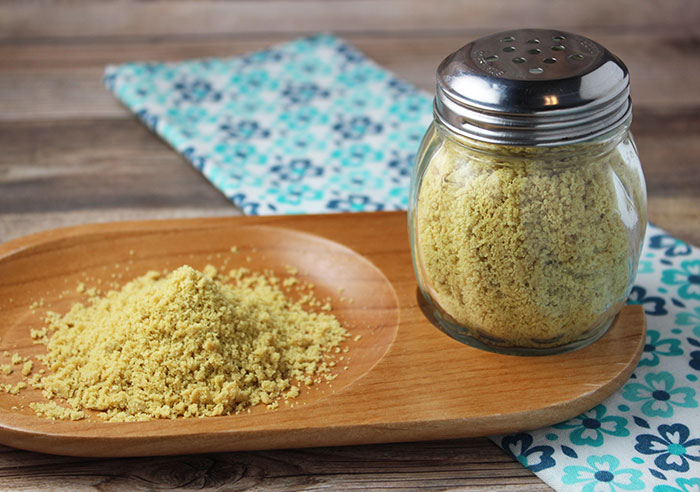
Vegan Parmesan Cheese Recipe
For this recipe you will need raw unroasted unsalted sunflower and sesame seeds. We personally always go for organic over conventional. We also make this recipe using half sunflower seed and half pumpkin seed. This will however give a green color to your vegan parmesan, especially if you use Austrian pumpkin seeds.
Ingredients:
- 2C sunflower seeds
- 1/2C sesame seeds
- 1/4t probiotic powder
- 1/4t turmeric
- 2T lemon juice
- 1/2t sea salt
- 1C pure water
Directions:
- Place seeds into a 1-quart jar.
- Add a dash of sea salt and fill the jar with pure water, leaving some room at the top for the seeds to expand.
- Soak overnight and then strain out liquid.
- Rinse again in pure water.
- In a high-speed blender, place 1C pure water and then probiotic, salt, lemon juice, and turmeric.
- Then add your strained seeds and blend until smooth, adding more water if needed.
To Age the Cheese:
- Place this seed mixture into a 1-quart jar with a fermentation cap or loose lid and allow it to culture for about 8 hours at room temperature ideally between 67°-72°F (19-22°C).
- During this procedure, you may notice the texture changes slightly as it ferments. In the end, it should have a sharp cheesy almost smoky aroma. We personally have never had seed cheese go bad because it is protected by salt and lactic acid bacteria, but IF for some reason it looks and smells off putting, you should discard it and begin again.
- After this aging process, you are now ready to dehydrate it.
(Note: If the liquid and solids have separated, simply turn the jar upside down into a bowl for 10 minutes to strain out extra liquid.)
To Dehydrate:
- On a dehydrator tray, place half of the jar of aged cheese onto a non-stick dehydrator sheet with screen underneath. Repeat for the other half.
- With a rubber spatula spread out the cheese into a squared shape, about 1/8 inch thick. The thinner it is the faster it will dehydrate.
- After about 4 hours, flip over onto the screen and peel off non-stick sheet.
- Then break up into pieces so it will dehydrator faster.
- Leave it in the dehydrator on med-low or until dry, usually between 8-12 hours.
- Grind up the parmesan pieces in a food processor to desired texture.
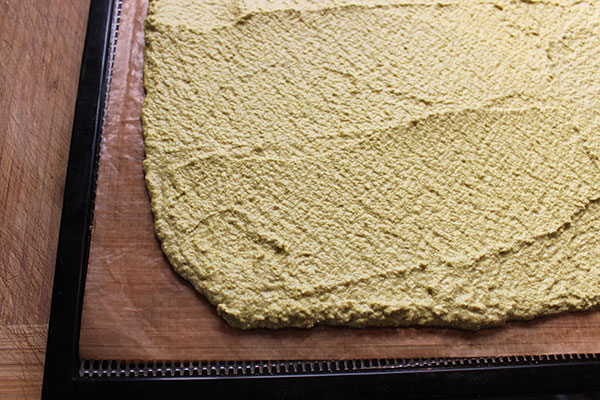


You can store your vegan parmesan cheese in a glass jar or cheese shaker in a cool dry place.
This dairy-free alternative is great on salads, soups or with many savory meals.
Check out our other seed cheese recipes and parmesan using pumpkin seeds.
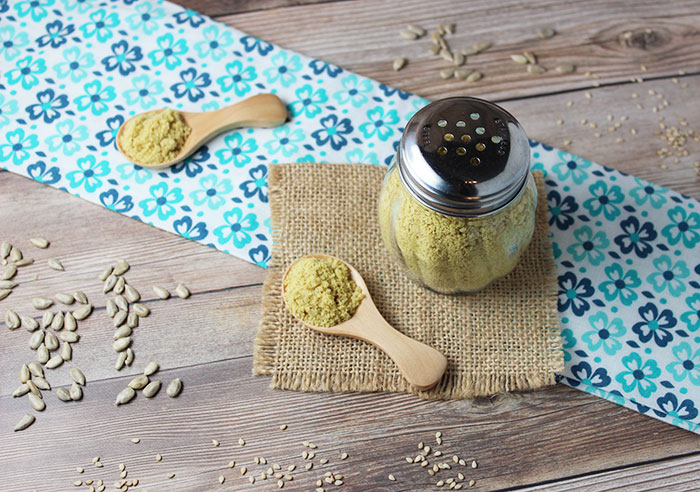
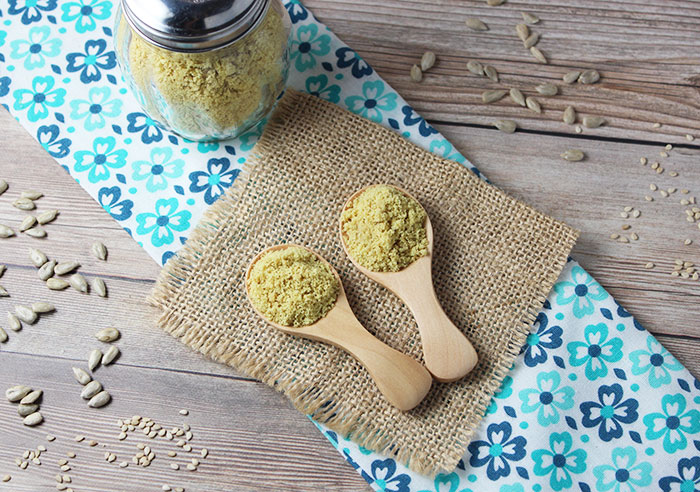
Precautions:
It is, of course, important to avoid seed or nut cheeses if you have nut or seed allergies. It is also important to consider avoiding food ferments if you have severe allergies to molds.

